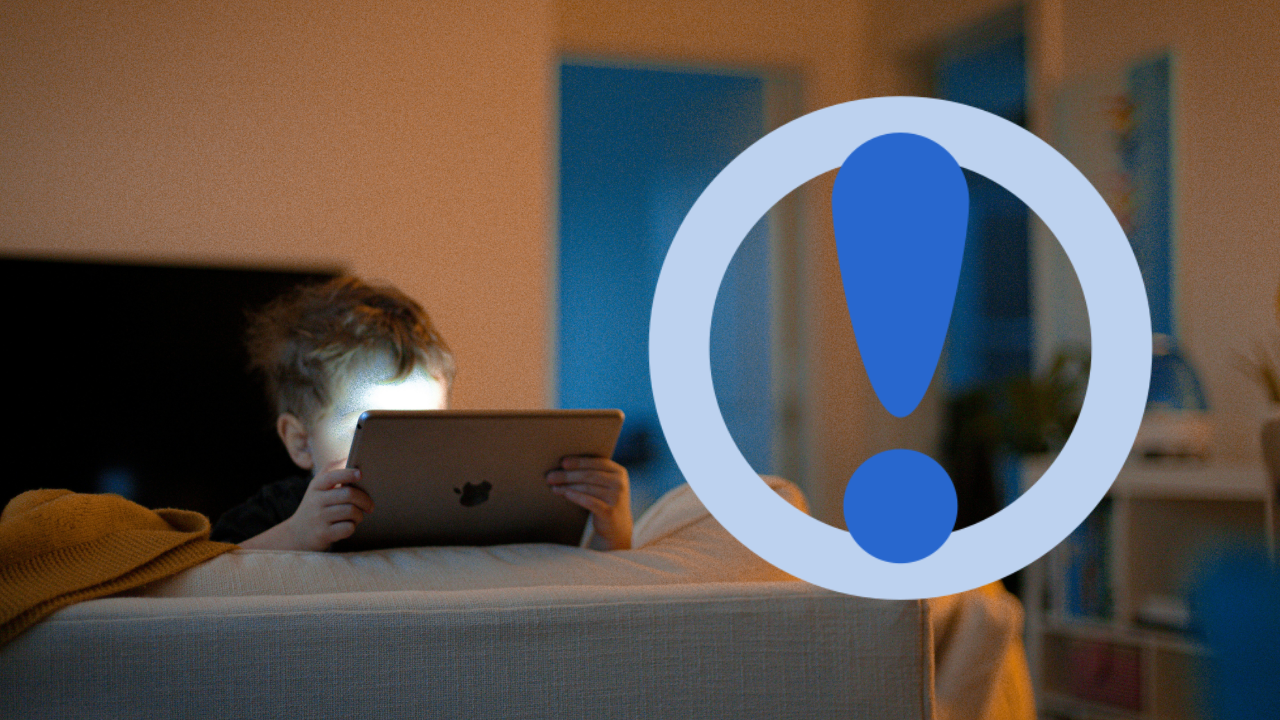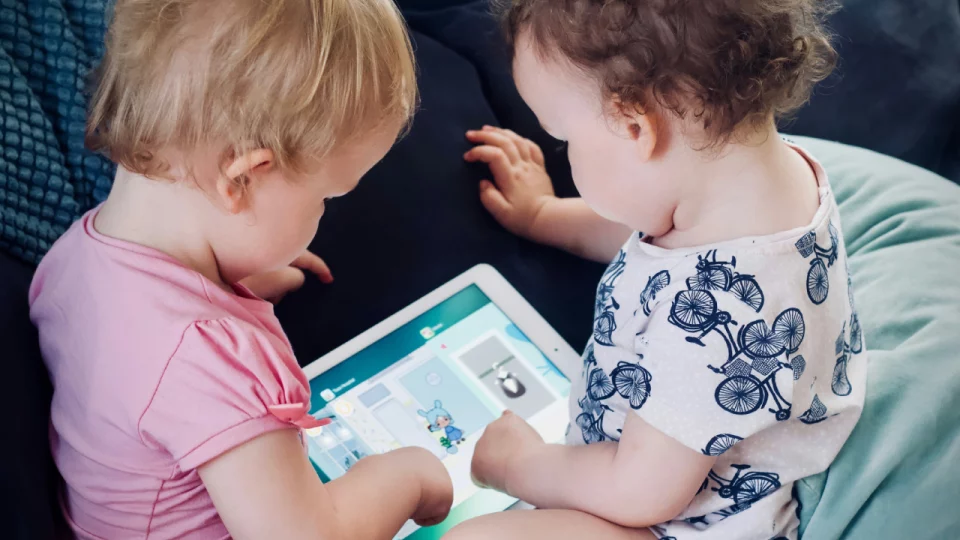In today’s world, technology has become an integral part of daily life. From smartphones and tablets to televisions and computers, screens are everywhere. While screens offer many advantages for adults, they also come with significant concerns, especially when it comes to babies and young children.
Parents are constantly faced with the challenge of balancing the use of technology with healthy development. The question of how important it is to keep your baby away from screen time has been a topic of ongoing discussion among pediatricians, child psychologists, and parents alike.
Table of Contents
Understanding Baby Development and the Role of Screen Time
Babies, particularly those under two years old, are in a critical phase of brain development. During this time, their minds are rapidly absorbing information from the world around them, primarily through real-life interactions with people, objects, and their surroundings. Babies learn to communicate, develop motor skills, and build emotional connections by observing and mimicking the actions and expressions of their caregivers. Every smile, word, and gesture exchanged between a baby and a caregiver plays a crucial role in building neural connections.
Screen time, however, provides a passive form of stimulation. Unlike interactive play, which engages multiple senses and cognitive skills, watching a screen often limits a baby’s ability to actively participate in their environment. The American Academy of Pediatrics (AAP) recommends that babies under 18 months avoid screen time altogether, except for video chatting. This recommendation is based on evidence showing that babies benefit far more from real-world experiences and interactions than from digital content.
The Potential Risks of Screen Time for Babies

While the temptation to hand over a smartphone or tablet to calm a crying baby is understandable, particularly in a world where busy schedules and demanding work-life balance are the norms, there are several risks associated with exposing babies to excessive screen time.
1. Delayed Language Development
Research shows that excessive screen time is linked to delays in language development in young children. Babies learn language through interactions with caregivers—hearing voices, observing facial expressions, and responding to cues. A baby staring at a screen is missing these critical exchanges, leading to fewer opportunities to practice communication skills.
A study published in the journal Pediatrics found that children who had more exposure to handheld devices were more likely to have delayed speech development. The more time babies spend focused on a screen, the less time they have to engage in face-to-face communication, which is essential for language acquisition.
2. Negative Impact on Social and Emotional Development
Social interaction is vital for a baby’s emotional development. Babies develop emotional intelligence by observing the emotions of others, interpreting them, and responding appropriately. Screens, however, do not provide the same level of feedback or connection that a caregiver does. For instance, a television character may smile, but that smile lacks the personal connection and responsiveness that come from a real human interaction.
When a baby spends too much time in front of a screen, they may struggle to develop the social and emotional skills needed to form healthy relationships later in life. Emotional bonding with caregivers can be disrupted if parents rely too much on screens as a way to entertain or soothe their children.
3. Potential for Sleep Disruption
Sleep is a crucial aspect of healthy development, particularly for babies. Unfortunately, screen time, especially before bed, has been linked to sleep disruption in both children and adults. The blue light emitted by screens interferes with the production of melatonin, the hormone responsible for regulating sleep.
For babies, disrupted sleep patterns can affect not only their physical health but also their cognitive development. Poor sleep quality is associated with learning difficulties, mood swings, and behavioral problems in young children. Thus, keeping babies away from screens, especially in the hours leading up to bedtime, is essential for promoting healthy sleep habits.
4. Decreased Attention Span
There is growing concern that early exposure to screen time may lead to decreased attention spans in children. Screen-based entertainment often involves rapid changes in images, colors, and sounds, which can overstimulate a baby’s developing brain. This fast-paced stimulation does not reflect the real-world experiences that babies need to develop focus and attention.
In contrast, interactive play and exploration of the physical world encourage babies to concentrate and develop sustained attention. When babies spend more time engaged in real-world activities, they are better equipped to develop the attention and focus needed for future learning and problem-solving.
5. Increased Risk of Childhood Obesity
Excessive screen time is often associated with a sedentary lifestyle, which increases the risk of childhood obesity. Babies who spend more time in front of screens are less likely to engage in physical activities such as crawling, walking, or playing. These activities are vital for developing motor skills, coordination, and muscle strength.
Moreover, screen time often coincides with eating habits, particularly when babies are exposed to media during meal times. This can lead to unhealthy eating patterns, as children may eat mindlessly while watching television or using a tablet, contributing to an increased risk of weight gain and obesity later in childhood.
Finding Healthy Alternatives to Screen Time

Given the risks associated with screen time, it’s important for parents to prioritize alternative activities that promote healthy development. Fortunately, there are many ways to engage babies without relying on screens. Here are a few ideas:
1. Interactive Play
Interactive play is one of the most effective ways to promote learning and development in babies. Simple activities such as playing with toys, stacking blocks, or engaging in peek-a-boo can enhance a baby’s cognitive and motor skills. Babies thrive on exploration and problem-solving during play, which helps build the neural connections necessary for future learning.
2. Reading Aloud
Reading to babies from an early age introduces them to language in a rich and interactive way. Books with colorful pictures and simple text help babies associate words with images and concepts, laying the foundation for literacy. Storytime also promotes bonding between parents and babies, creating opportunities for verbal interaction and emotional connection.
3. Sensory Exploration
Babies learn about the world through their senses—touch, sight, sound, taste, and smell. Sensory play, such as feeling different textures, listening to music, or playing with water, allows babies to engage in hands-on experiences that stimulate brain development. Unlike passive screen time, sensory play is active and encourages curiosity and discovery.
4. Outdoor Activities
Spending time outdoors is an excellent way to promote physical activity and exploration. Taking babies for walks in the park, letting them crawl on the grass, or even observing the world from a stroller can provide rich sensory experiences. Fresh air, natural light, and exposure to the environment help stimulate a baby’s senses and promote physical and emotional well-being.
5. Social Interaction
Babies learn best from interacting with others. Engaging with caregivers, siblings, and other children allows babies to practice communication, emotional expression, and social skills. Parents can arrange playdates, attend baby classes, or simply spend quality time talking and playing with their child to foster social development.
Managing Screen Time as Your Baby Grows
While it’s important to limit screen time for babies, it’s also essential to recognize that technology is an unavoidable part of modern life. As children grow older, they will inevitably encounter screens, whether for educational purposes or entertainment. The key is to introduce screens in a way that supports healthy development rather than hindering it.
Here are a few tips for managing screen time as your baby becomes a toddler:
- Set Age-Appropriate Limits: As children grow, parents can gradually introduce screen time in small doses, ensuring that it’s age-appropriate and educational. For toddlers aged 18-24 months, the AAP recommends limited screen time with high-quality programming, and parents should co-view to help their child understand what they’re seeing.
- Create Screen-Free Zones: Establishing screen-free zones, such as during meals or in the bedroom, can help create a healthy balance. These zones allow for uninterrupted social interactions and ensure that screens do not interfere with sleep.
- Lead by Example: Children often imitate the behaviors of their parents. By limiting their own screen use and prioritizing face-to-face interactions, parents can model healthy habits for their children.
